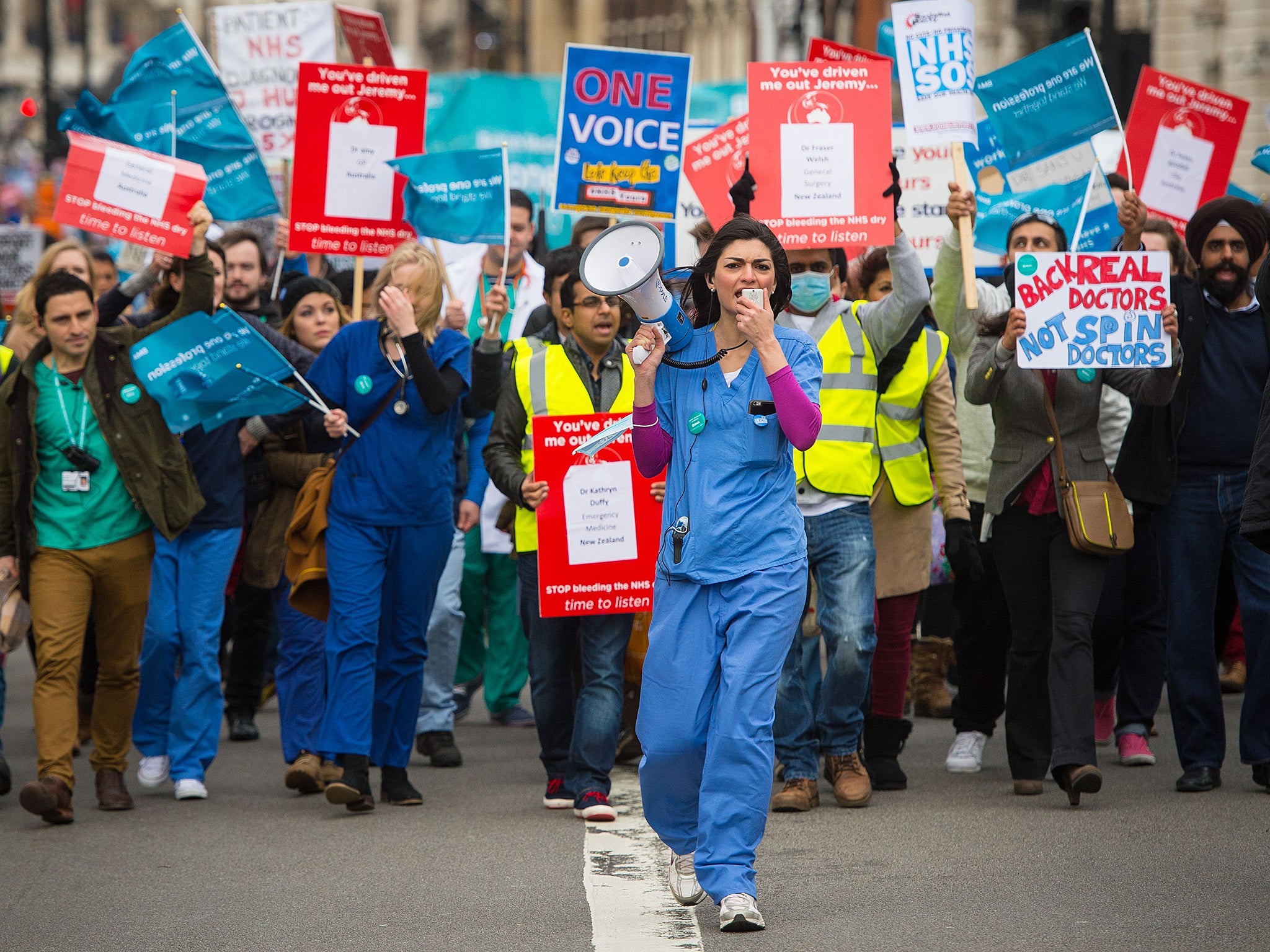Patient safety ‘at risk’ as junior doctors left to run A&E and other departments, GMC warns
General Medical Council warns young trainees are being ‘left to fend for themselves’

Your support helps us to tell the story
From reproductive rights to climate change to Big Tech, The Independent is on the ground when the story is developing. Whether it's investigating the financials of Elon Musk's pro-Trump PAC or producing our latest documentary, 'The A Word', which shines a light on the American women fighting for reproductive rights, we know how important it is to parse out the facts from the messaging.
At such a critical moment in US history, we need reporters on the ground. Your donation allows us to keep sending journalists to speak to both sides of the story.
The Independent is trusted by Americans across the entire political spectrum. And unlike many other quality news outlets, we choose not to lock Americans out of our reporting and analysis with paywalls. We believe quality journalism should be available to everyone, paid for by those who can afford it.
Your support makes all the difference.Junior doctors are being left in charge of hospital A&E departments and other units, putting patient safety at risk, Britain’s medical regulator has warned.
Trainee medics are being “left to fend themselves” by being asked to look after patients they are not qualified to treat, the General Medical Council (GMC) said.
Its chief executive, Charlie Massey, said inexperienced young doctors left without supervision feel worried they might “inadvertently cause harm to patients” and risk losing their licence if they act beyond their competence.
“We are very worried when trainees tell us that they have been put in a position where they have been asked to act above and beyond their clinical competence and capabilities,” he told The Guardian.
“That’s a concern because it creates very clear risks to patients from doctors who may not know what they’re doing.”
Mr Massey was speaking to the paper after sharing the GMC’s findings from its annual survey of the education and training received by Britain’s 55,000 junior doctors.
Dr Sarah Hallet, the British Medical Association’s (BMA) deputy chair of its junior doctor committee, said: “It is an all too common problem that many junior doctors move into new posts without a thorough induction.
“This is not the fault of senior doctors, who we know are under immense pressures and face ever-increasing workloads in a health service that is more and more overstretched.
“Despite this, it is crucial that junior doctors have access to appropriate training, and are able to work in an environment that is safe for both them and their patients.
“We need NHS managers to work with organisations like the BMA to address these issues.”
Join our commenting forum
Join thought-provoking conversations, follow other Independent readers and see their replies
Comments